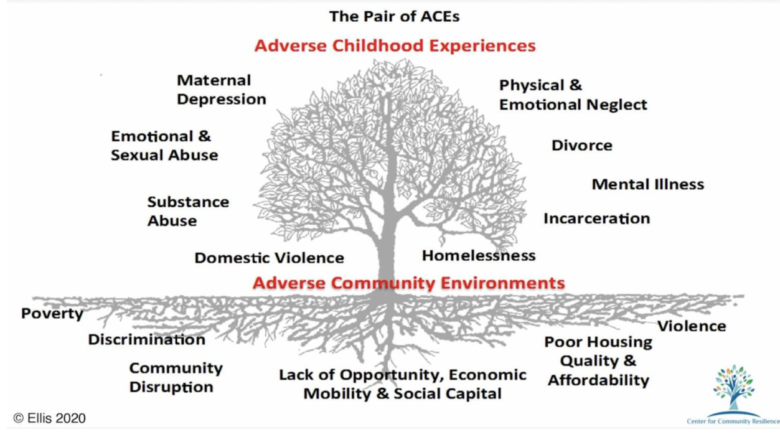By Shannon Severud- JONAH intern
As a mother to five children and a former foster mom to many more, children hold a special place in my heart. My compassion for children has fueled my desire to return to school and pursue a degree in social work. I believe children are the most vulnerable people in society. As infants and toddlers, children are completely dependent on their caretakers. Even as a child gets older and more capable of caring for themselves, they still are very vulnerable and can face many challenges. One of the primary challenges that can either cause or exacerbate more issues in childhood is poverty.
Children growing up in families who are experiencing poverty can have life-long consequences. These are a few of the most common effects of poverty on children:
- Health risks: Reduced growth and development in their brain and body due to environmental issues, chronic stress, exposure to pollution, and nutritional deficiencies. These things can cause mental and physical health problems into adulthood.
- Cognitive abilities: Children’s brain development is impacted by their experiences, environment, and nutrition. Language, thinking, attachment (bonding), and memory can all be affected. There is an increase in learning disabilities and developmental delays among children in poverty. Behavioral challenges and mental health problems can result from higher stress levels.
- Family stress: Chronic stress, or times of severe stress can occur from the difficulty of meeting a family’s basic needs. Other sources of stress are unemployment, limited access to health care, dropping out of high school, finances, housing instability, violence, crime, food instability, etc. Poverty and stress are two consistent factors among perpetrators of child abuse.
The negative experiences that many children in poverty experience are called ACEs- Adverse Childhood Experiences. The effects of ACEs have been extensively researched. The graphic below shows some of the events that count as ACEs. ACEs (which occur during childhood) have been shown to lead to poor physical and mental health outcomes as adults. ACEs also have been shown to reduce a person’s life span and increase a person’s likelihood of incarceration, toxic behavior (drinking, smoking), mental health issues, and disease (pulmonary, asthma, kidneys, stroke, cancer, diabetes, obesity).
As of 2018, 10.6% of people in Wisconsin have income below the Federal Poverty Line and 25.8% below the ALICE threshold (also known as the “working poor”- people who are employed but still cannot meet their basic needs). In Eau Claire county those numbers rise to 14.4% below the Federal Poverty Line and 42% below the ALICE threshold. In Fairchild, these numbers are the highest (for Eau Claire County) with 42% of people below the Federal Poverty Line and 74% below the ALICE threshold! That is an incredible amount of people in poverty and we know that these statistics increased over the pandemic as well.
What can we do about this large, complex problem? The JONAH Child Poverty Task Force is working to tackle this problem in part through promoting the awareness of ACEs in the community and by advocating for the prevention of ACEs by focusing on the availability of quality affordable childcare. The lack of childcare that is both affordable and high quality is a very real problem for families who are currently in poverty. Families who cannot find quality affordable childcare are forced to make difficult decisions- having a parent stay home to care for the children (and reduce the family’s income), put the children in lower quality (often unregulated) childcare, spend all of their earnings paying for expensive child care, or at times even leave the children home alone. Several of these options can be dangerous for a child, the other options greatly reduce the family income- thus keeping the family in poverty. There currently are several great programs in the Chippewa Valley that focus on connecting parents with childcare resources, evaluating the quality of current childcare providers, subsidizing the cost of childcare to make it more affordable, helping people with the startup costs of becoming a childcare provider, and providing nutritious food to childcare providers to give to the children in their care. Quality, affordable childcare is important- as Renee Ernsting from Western Dairyland’s Childcare Partnership said during the February task force meeting, “Families rely of safe, affordable childcare to be able to work.”
The Child Poverty Task Force has worked on the issue of child poverty from many angles and will continue to do so. They would love to hear from people who are also passionate about this issue or have connections to things that are related to child poverty. They meet once a month via zoom. Contact John Wagner to be a part of the next meeting.
ACEs information sources: CDC, Kolk

